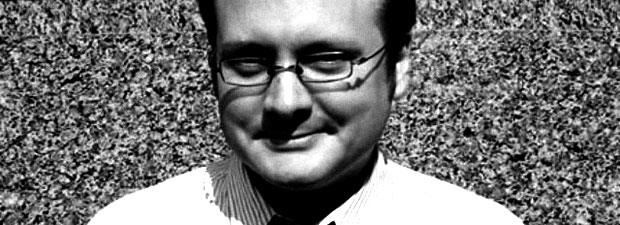I first became aware of Johnson's work after seeing Brick, the high school detective movie that was both brilliant and unsettling. I can't now recall who brought that freshman effort to my attention -- it might have been a film blog or perhaps I stumbled across it on Netflix. Regardless, it was not long after the film's release in 2005 which came and went rather quietly; in the time since, however, Brick has built a steady and passionate following for the director. It was an original screenplay, written after his graduation from USC School of Cinematic Arts, which was too ambitious for a studio to chance on a first-time director. Instead, he raised the half-million dollars himself and went to work. Despite being a new director he was no stranger to filmmaking, having shot over 80 short films by the end of high school. Of the process, he said, "I was getting used to having a camera in my hands, and with finding shots and forming a (crude) visual language. I was goofing around with editing, with sound, putting things up against each other and testing how malleable everything was. Doing a bunch of it, even if it was bad, was the key to it becoming something I could start refining." He found that his style was very distinctive and inspired heavily by classic noir films like The Maltese Falcon and The Glass Key. The Cohen Brothers also influenced his stylistic choices. The author Dashiell Hammett, famous for his American hard-boiled crime fiction, moved Johnson to contribute his own work to the genre.
In the end, though, what comes out of Johnson is pure originality. He wanted so badly not to merely mimic anyone that he has released only 3 major films in his 7 officially active years (all original screenplays): Brick, The Brothers Bloom, and most recently, Looper. Each film has the hallmarks Johnson is becoming known for, not the least of which being witty, stylized dialogue. Joseph Gordon-Levitt, a favorite of Johnson's, breathes life into the words Johnson writes with a credibility that might fall flat from other actors' less talented mouths. The director is also adept at getting inside the uncomfortable recesses of his characters minds. This theme is seen in all of his movies, but is also clearly evidenced in two landmark episodes he directed of "Breaking Bad": "Fly" (which was essentially a bottle episode) and "Fifty-One;" both served to expose Walter White's increasing desire for control, tendency toward mania, and seduced the viewer into his world to the extent that his irrationality seemed rational after all. Such is the brilliance of Johnson's direction.
In another example of Johnson's emphasis on people over spectacle, one might expect that a film about time travel would involve some flashy special effects and an elaborate mythology. "It's not a big, shiny sci-fi world, it's something that is... everything is just broken down, so it's kind of a dystopian future." Johnson wanted to focus not on the gimmicks of time travel ("I'd go back and kill Hitler!" or "I'd play winning lottery numbers!") but rather the psychological effects. What happens, for example, when a young man can be given security in life -- money, health care, companionship -- but in exchange knows the date of his death? Is that preferable to potentially live longer and in ignorance while also gambling that you could die sooner? Would you take a guaranteed 30 years, or trade it for the toss-up of 5 or 50? And what does it do to a person to see their decisions manifest in their older self before they've had a chance to make those decisions at all? These are the sorts of questions Johnson likes to pose, and see where his characters take him.
Since Johnson has spoken publicly against directing films not of his own writing, we can expect that he will continue to search inwardly for material versus chasing Hollywood trends. When speaking about how to "break into" the movie scene, he said, "At the end of the day, the movie that got me noticed was something that nobody was asking for – a bizarre high school detective movie – but it was 100% mine." He has trusted audiences to approach his work with an open mind because he knows that, in a way, creating original films against a backdrop of sequels and remakes will stand for itself. "It’s important to keep discovering."
Brick is available on Netflix Instant
The Brothers Bloom is available OnDemand, on Blu-ray, and DVD
Looper is in theaters everywhere now
Check out this excellent interview about Johnson's filmmaking process, from screenwriting to post-production.


 RSS Feed
RSS Feed
